
Looking in the Mirror: My Journey to Self-Love

A few months ago, for the first time in a very, very long time, I looked at myself in the mirror for more than a couple of minutes. I used to cry every time I saw my reflection, so I figured that it would be best for me if I just stopped looking. Every time I looked at my body, all I saw were my flaws. All I saw were the stretch marks I despised, the scars I longed to cover, the features I could never change.
Honestly, I probably never would have thought to try to learn how to love myself again, if it hadn’t been for my mom. One day, she asked me a very simple question, and yet this question managed to haunt me for months: “What is one thing you like about yourself?” I stayed up night after night, waiting for an answer to magically reveal itself. I realized that I could list a million things about myself that I disliked, things I so desperately wanted to change, but I couldn’t name a single thing about myself that I appreciated. I was really disappointed in myself. Was there not even a single thing that was lovable about me?
I thought about this question for five months straight before I found an answer. I was looking at my hands during class one day, and I realized that I liked the way my left wrist looked when I tilted it a certain way. When I got home that day, I rushed to my room and started a new page in my diary, titled “Things I Like About Myself”, and immediately added my discovery to my list. I was proud of my teeny, tiny list, and to my surprise, it grew faster than I ever could have imagined. Day after day, I found myself returning to my list and adding new traits and characteristics of mine that I took pride in; I started to love my eyes, my bravery, my stomach, my curiosity, my compassion, my wrists (both of them!!).
It hasn’t been an easy journey, and I’ll admit, sometimes it is a very, very difficult thing to do to look at yourself and see a person who deserves love- specifically, your own love. If you are someone who is struggling with your insecurities, I want you to know that you are not alone. But as much as I can tell you that you are beautiful (which you definitely are, you cutie!!!), I can’t force you to believe it. That’s up to you. That’s your choice, but I’m here telling you that you deserve to be loved by someone as amazing as yourself. You are beautiful; this I promise you.
One day, I hope to love every part of me. And every day, I work very hard to bring myself closer to that goal. Every day, I make an active choice to look in the mirror and see someone I love in its reflection.
I challenge you to do the same. Look in the mirror and don’t look away.
View the discussion thread.
Related Stories

Guarding Our Communities: The Imperative of Immunization
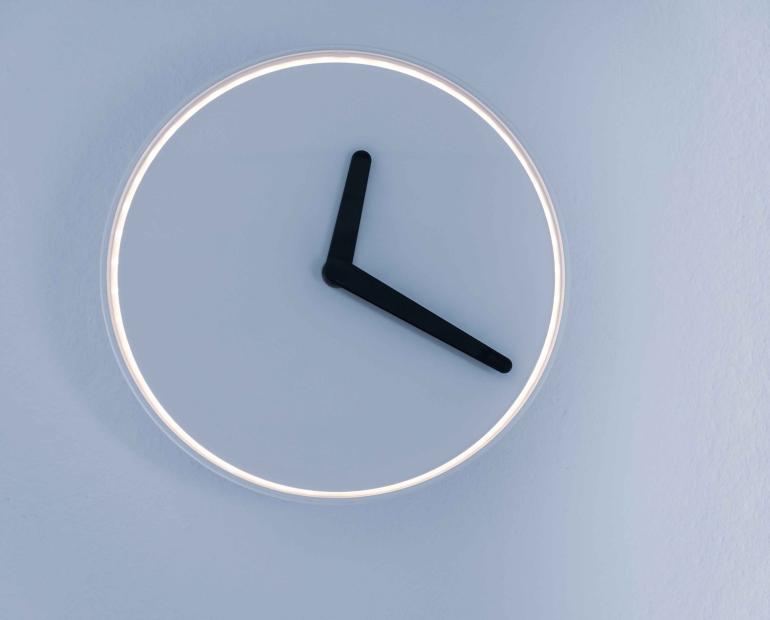
🔴 A Red Letter To The Youth: A Call to Action 🔴
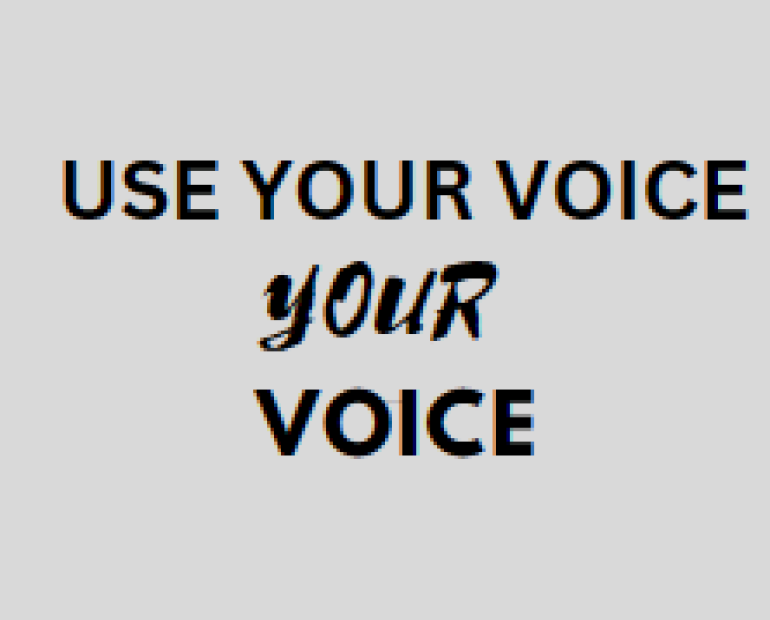
Why voices need to be heard
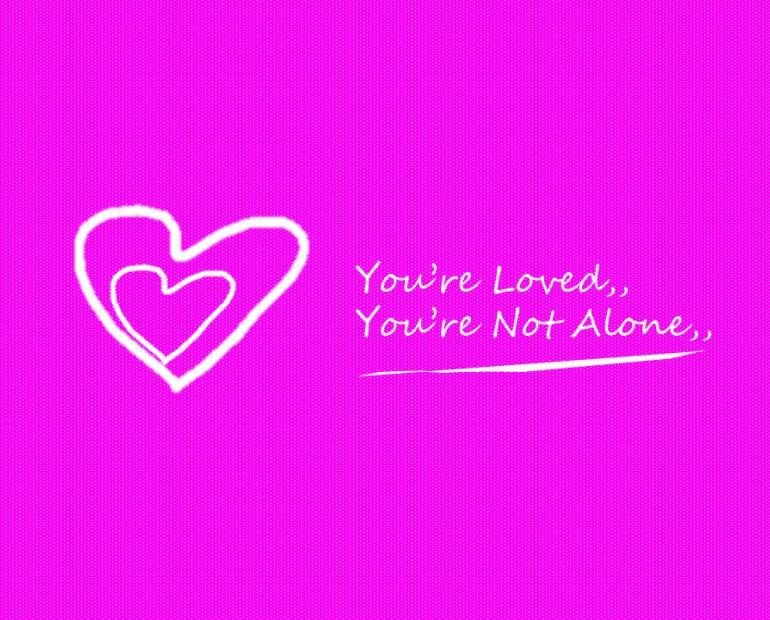
A Letter for Girls Who Struggle
C 2019 Voices of Youth. All Rights Reserved.
Siyang's Visual Art World
A personal blog for aad 250., personal reflection essay – looking myself in the mirror.
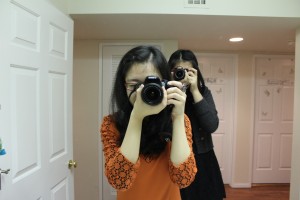
“Mirror, mirror! Is this the girl I really want to be? Am I in the right place? ” The mirror in my bathroom is not the magic mirror of the Queen in Snow White. It cannot give me a right answer, so I have to reply the questions by myself.
“Siyang, I think you are at least not ugly.” The “self” in the mirror says. I am satisfied with my appearance that my parents give me and make up by my BB cream, eyes shadow, dress and shoes. Thanks to people’s criterion about beauty, I pay more attention to my eating habit and health, so I have a normal body type. I’m a girl, a Chinese girl, a Chinese girl with big eyes and black straight hair. When I was a little girl, my mom told me, “Beauty is natural.” She doesn’t like making up too much, so I didn’t have any makeups until I was 19. My parents like clean and simple dressing style. In my mind, my father always wears business causal when he goes to company, and he has never messed up. Their standards of beauty influenced me a lot before I went to school.
In China, students have to wear uniforms from Monday to Friday when they go to school. What really surprised me is that I wore uniforms for 12 years. The time period covers elementary school, middle school and high school. I think people in other countries might not believe all of the students in a high school wear the same uniforms. Before I was 19, which is the year that I came to America, I think I didn’t know how to dress up myself and what kind of body adornment fit my style. We were not allowed to wear personal decorations such as necklace, earrings and bracelet in school. I only wore them when I went out with friends on the weekends or holidays. If I looked through the photos that I took in my high school, I must say, “Oh my god! I looked so stupid. Why did I choose that skirts?” I think the school rules in China prevented our creativity and freedom of perusing beauty. I even did not know my personal style until I went to America.
When I went to America, I started to lean how to dress up and make up. I realized a personal should have his or her style. The way of dressing will represent one’s personality, not every parts of personality, but the first impression is very important. In Eugene, I think most of us like to wear comfortable. I always wear T-shirts and jeans to school. If the weather is nice outside, I will wear skirts or dress. However, it really depends on where I will go and what people I will meet. If I have a presentation or meeting, I must wear business causal. It shows my serious and polite attitude to other people.
Do I have my own criterion of beauty? Yes. But I have to change it according to others’ values because most of the time, my appearance is showing to other people not to myself. For example, if I want to wear high-heel tomorrow, maybe I will give up because it would be weird in university class. “Siyang, you look tired but happy.” It is true. I choose my current life style and role by myself, so I am happy. Although sometime things could be hard for me, I have enough confidence to deal with them. “Siyang, you are not the little girl; you changed a lot. Do you like that?” Half and half. I feel busy and happy at most of the time because I am learning what I am interested in and doing what I want to do. However, when I live alone or have to face some challenges, I will miss my family and miss the past “simple and innocent” little girl. Choosing to study abroad in America and being a new comer, I have to learn how to suffer the problems and get used to others’ judgements. This society forced me to change and adapt. “Siyang, will you still persist in your current choices and style?” Definitely. This is the way I want to live; this is the person I want to be; this is also the way I want to exist in our society.
22 thoughts on “ Personal Reflection Essay – Looking Myself in the Mirror ”
I studied at the university. But it was not easy for me to cope up with writing different works on this topic. There was never enough time and the assignments were terrible. That’s why I turned for online assignment help as it was not possible to finalize my sections in the dissertation. I realized that it is better to give such a task to someone else than to blush in front of the teacher for my dissertation.
These services are crucial because they aid in your goal-achieving. A personal statement was recently required of me in order to apply for residency in one of the EU nations. I also had no idea how to go about doing it. Fortunately, I received advice from a residency personal statement editing , and they assisted me in solving this issue. The process was completed fast and effectively. And I’m pleased with how well my situation turned out.
Good day! If you often face lack of time or experience when writing essays, you should pay attention to cheap essays . I personally used them more than once and was always satisfied with the result. Professional writers will not only help you cope with deadlines, but also contribute to the quality of work, making your essays more convincing and literate.
Thanks for sharing the best informative article sex crime defense lawyers
you can see the amazing images like this in our blog birthday wishes images
Drift Boss encourages players to stay focused and aim high.
Great website you have here. It’s hard to find high-quality writing like yours these days. Thank you for your articles. I find them very helpful. I really appreciate people like you! Take care and have a great day ahead!! Karya Bintang Abadi
Thank you for another informative website. The place else may I get that type of info written in such an ideal manner? I have a mission that I am simply now working on, and I have been on the look out for such information David Reinbacher injury: Torn knee meniscus speculated by expert doctor after Habs rookie’s early exit
With the right spirit and strategy, you can increase your chances of winning a super jackpot in online lottery games. If you want to know more information, please visit our website What Is The OGO? Exploring Space
Looking Myself in the Mirror, your personal reflection essay, provides a thorough and open examination of self-identity. Your descriptions of your experiences and observations are thought-provoking and relatable. Seeing how you face your obstacles and welcome change is encouraging. Your openness gives the story depth and encourages readers to consider their own experiences. In addition to encapsulating the spirit of self-discovery, this essay inspires others to reflect on their own lives. Excellent work!” manassas divorce lawyer
The essay “Looking Myself in the Mirror” effectively explores personal development and self-identity, highlighting vulnerability and acceptance as key components of personal growth. what is the punishment for prostitution Prostitution penalties vary across jurisdictions, reflecting societal perspectives. Critics argue illegalization worsens human trafficking, while others suggest decriminalization and supportive services to prevent solicitation and preserve community norms.
The bathroom mirror symbolizes self-reflection, promoting genuine self-examination and identity exploration. It encourages introspection, leading to personal development and realizations, reminding us of the continuous process of self-discovery. punishment for solicitation of a minor Penalties for soliciting a minor should be considered due to the seriousness of the offense, the legal structure, and the potential for rehabilitation. Penalties should be commensurate with the offense’s severity, and punishments should include jail time and sex offender registration. Rehabilitation programs can help address underlying issues and reduce the impact on victims.
If you need BTEC assignment help or dissertation help services, this team is reliable. You can easily buy assignment UK or get assistance to help write my paper. Their writing services in UK are top-quality, with expert academic paper writers and research paper writers. They also provide excellent dissertation help UK and nursing coursework help. their professional assignment help services make your academic journey smooth and stress-free. https://samedayassignments.com/ highly recommended!
the comment section likely features readers sharing their reflections on the personal essay “Looking at Myself in the Mirror.” Participants may discuss their own experiences with self-reflection, identity, and personal growth, responding to the themes presented in the essay. hopewell va reckless driving lawyer The page discusses the serious consequences of reckless driving in Hopewell, VA, including potential fines, points on a driving record, and possible jail time. It emphasizes the importance of hiring an experienced lawyer to navigate the legal challenges and reduce the potential penalties associated with reckless driving charges.
amazing writing. bank ruptcy lawyer near me the function of defense lawyers in the law enforcement sector. It frequently explores issues of justice, ethics, and striking a balance between preserving individual liberties and maintaining public safety.
The blog post presents a personal reflection essay where the author explores self-awareness and growth by looking at their own identity. It discusses the challenges and revelations encountered when reflecting on one’s past and aspirations for the future. sex crimes attorney near me The website offers expert legal services for individuals accused of sex crimes, providing strong defense strategies to protect clients’ rights. It emphasizes the importance of experienced attorneys in handling sensitive cases with confidentiality and professionalism.
The openness and vulnerability of this writing are among its strong points. The work is accessible to anyone who has wondered about their own place in the world because the author does not hold back when expressing periods of uncertainty, insecurity, or confusion. The metaphor of “looking in the mirror” efficiently conveys the act of facing oneself, whether it is accepting one’s shortcomings, making amends for previous transgressions, or accepting fresh viewpoints. This contemplation encompasses not only outward appearance but also our perceptions of our own behavior, decisions, and development over time. Weapons Offense Lawyer in fairfax
The essay is insightful and powerful, highlighting the process of self-discovery and honesty. It encourages open reflection on strengths and challenges, inspiring others on their own journey towards self-acceptance and growth. estate plan lawyer .An estate plan lawyer is crucial for protecting assets and ensuring clear wishes, drafting wills, trusts, and navigating tax implications, providing expert guidance for informed decisions and ensuring future and loved ones’ well-being.
I sincerely appreciate you giving people this website’s exceptionally excellent opportunity to read in-depth. The blog post presents a personal reflection essay where the author explores self-awareness and growth by looking at their own identity. Fairfax Criminal Defense Attorney It’s critical to evaluate a Fairfax criminal defense attorney’s background, standing, level of experience, and general strategy for defending clients. Selecting the appropriate lawyer is essential since criminal charges can have a significant and long-lasting impact on your life.
I truly appreciate you providing readers with this website’s incredibly good option to read in-depth. The blog post is a personal reflection essay in which the writer examines their own identity in order to examine self-awareness and personal development. Fairfax Theft Lawyer A Fairfax, Virginia theft lawyer focuses in defending anyone charged with theft-related offenses, from small-time shoplifting to major embezzlement. Serious repercussions from theft accusations can include fines, jail time, and a permanent criminal record, which can affect one’s ability to find work, housing, and other facets of life.
The author’s openness and vulnerability make this work relatable to anyone questioning their place in the world, with the metaphor of “looking in the mirror” effectively capturing the act of self-reflection. How Much Divorce Cost in New York The cost of a divorce in New York typically ranges from $300 to $1,500, depending on factors like whether it’s contested or uncontested. Additional fees may apply for legal representation, court filings, and other services.
Anyone wondering where they fit in the world can relate to this work because of the author’s honesty and sensitivity, and the metaphor of “looking in the mirror” perfectly captures the act of self-reflection. emergency protective order virginia An Emergency Protective Order (EPO) in Virginia is a short-term order for individuals at risk of harm from domestic violence, abuse, or threats, granted without a hearing, lasting up to 72 hours, and violating can result in arrest and criminal charges.
Leave a Reply Cancel reply
Your email address will not be published. Required fields are marked *
Save my name, email, and website in this browser for the next time I comment.

- General Categories
- Mental Health
- IQ and Intelligence
- Bipolar Disorder

Mirror Image Perceptions in Psychology: Exploring Self-Reflection and Identity
A glance in the mirror reveals more than just a reflection; it unveils a complex interplay of self-perception, identity, and the very essence of our psychological being. This seemingly simple act of looking at ourselves in a reflective surface opens up a fascinating world of psychological exploration, one that has captivated researchers and theorists for decades.
Have you ever wondered why some people can’t stop staring at their reflection, while others avoid mirrors altogether? The psychology behind mirror image perceptions delves deep into the human psyche, offering insights into how we construct our sense of self and interact with the world around us.
The Mirror’s Edge: Unraveling the Concept of Mirror Image Perceptions
At its core, the concept of mirror image perceptions in psychology refers to how individuals interpret and respond to their own reflections. It’s not just about recognizing oneself in a mirror – it’s about the complex cognitive and emotional processes that occur during this interaction.
Think about the last time you really looked at yourself in the mirror. Did you focus on a particular feature? Did you smile or frown? These reactions are all part of the intricate dance between our inner selves and the image we see reflected back at us.
The importance of understanding mirror image perceptions cannot be overstated in the realm of psychological research and self-understanding. It provides a unique window into how we form our self-concept, how we perceive our physical appearance, and even how we relate to others. Mirror talk psychology explores this fascinating aspect of self-reflection and personal growth, shedding light on the internal dialogues we have with our reflected selves.
Historically, the study of mirror image perceptions has evolved alongside our understanding of human consciousness and self-awareness. From ancient myths about Narcissus to modern neuroimaging studies, our fascination with reflections has been a constant thread in the tapestry of human inquiry.
Reflecting on Definitions: What Exactly Are Mirror Image Perceptions?
In psychological terms, mirror image perceptions encompass the cognitive, emotional, and behavioral responses we have when confronted with our own reflection. It’s a multifaceted concept that goes beyond mere visual recognition.
Key components of mirror image perceptions include:
1. Self-recognition: The ability to identify oneself in a reflection. 2. Emotional response: The feelings evoked by seeing one’s image. 3. Cognitive interpretation: The thoughts and judgments about one’s appearance and identity. 4. Behavioral reaction: How one acts in response to their reflection.
It’s crucial to distinguish between self-perception and mirror image perception. While self-perception refers to our overall sense of who we are, mirror image perception specifically deals with how we interpret and respond to our visual reflection. This distinction becomes particularly important when considering individuals with body dysmorphic disorders or those struggling with self-image issues.
The relationship between mirror image perceptions and self-awareness is intricate and profound. Our ability to recognize ourselves in a mirror is often considered a hallmark of self-awareness, a trait that separates humans from most other animals. This self-recognition plays a vital role in shaping our identity and how we navigate social interactions.
Theoretical Reflections: The Foundations of Mirror Image Perceptions
Several influential theories have shaped our understanding of mirror image perceptions in psychology. Let’s take a journey through some of the most significant contributions to this field.
Jacques Lacan’s mirror stage theory posits that infants between 6 and 18 months of age begin to recognize themselves in mirrors, marking a crucial stage in identity formation. This theory suggests that our relationship with our reflection begins early and plays a fundamental role in how we construct our sense of self.
Daryl Bem’s self-perception theory offers another perspective, proposing that individuals come to know their own attitudes, emotions, and other internal states partially by inferring them from observations of their own overt behavior and circumstances in which this behavior occurs. In the context of mirror image perceptions, this theory suggests that how we react to our reflection can influence our self-concept.
Social comparison theory, developed by Leon Festinger, also plays a role in understanding mirror image perceptions. We often compare ourselves to others, and our reflection serves as a tangible representation of ourselves that we can evaluate against societal standards or ideals.
Cognitive developmental perspectives on mirror image perceptions focus on how our ability to recognize and interpret our reflection evolves as we grow. This approach helps explain why young children might not recognize themselves in mirrors initially, and how our relationship with our reflection becomes more complex as we mature.
The Mind’s Eye: Psychological Processes in Mirror Image Perceptions
When we look in a mirror, a complex series of psychological processes unfold in rapid succession. Understanding these processes can provide valuable insights into how we perceive ourselves and interact with the world around us.
Visual processing and recognition form the foundation of mirror image perceptions. Our brains must first interpret the visual information received from the mirror, recognizing that the image is a reflection rather than another person or object. This seemingly simple task involves sophisticated neural mechanisms that have fascinated researchers for years.
Once we’ve visually processed the reflection, cognitive interpretation takes over. We begin to analyze what we see, comparing it to our internal self-image and making judgments about our appearance. This is where mirror exercise psychology can play a transformative role, helping individuals reshape their self-perception through guided reflection practices.
Emotional responses to self-reflection can vary widely from person to person and even moment to moment. Some might feel a surge of confidence upon seeing their reflection, while others might experience anxiety or dissatisfaction. These emotional reactions are influenced by a myriad of factors, including mood, self-esteem, and past experiences.
Speaking of past experiences, memory plays a crucial role in shaping our mirror image perceptions. Our recollections of past reflections, comments from others about our appearance, and significant life events all contribute to how we interpret what we see in the mirror today.
Beyond the Looking Glass: Implications of Mirror Image Perceptions
The way we perceive ourselves in the mirror has far-reaching implications for various aspects of our psychological well-being and social functioning.
Perhaps most significantly, mirror image perceptions have a profound impact on self-concept and identity formation. The image we see in the mirror becomes intertwined with our sense of who we are, influencing how we present ourselves to the world and how we believe others perceive us.
Body image and self-esteem are particularly vulnerable to the influence of mirror image perceptions. In a world where physical appearance is often overvalued, negative perceptions of one’s reflection can lead to decreased self-esteem and even contribute to the development of eating disorders or body dysmorphic disorder.
In clinical psychology and therapy, understanding a client’s relationship with their reflection can provide valuable insights into their mental state and self-concept. Mirror therapy in psychology has emerged as an innovative treatment for various conditions, including phantom limb pain and body image disorders.
It’s important to note that mirror image perceptions can vary significantly across cultures. In some societies, mirrors are imbued with spiritual significance, while in others, excessive focus on one’s reflection might be discouraged. These cultural variations remind us of the complex interplay between individual psychology and societal norms.
Reflecting on Research: Methods and Studies in Mirror Image Perceptions
The field of mirror image perceptions has been the subject of numerous fascinating studies, employing a variety of research methods to uncover the mysteries of self-reflection.
One of the most well-known experiments in this area is the mirror test, used in developmental psychology to assess self-awareness in young children and animals. In this test, researchers surreptitiously place a mark on the subject’s face and observe their reaction when they see their reflection. If the subject attempts to remove the mark from their own face (rather than the mirror), it’s considered evidence of self-recognition.
Neuroimaging studies have provided valuable insights into brain activity during self-reflection. These studies have identified specific regions of the brain that become active when individuals view their own reflection, helping us understand the neural basis of self-recognition and self-awareness.
Cross-cultural research on mirror image perceptions has revealed intriguing variations in how different societies relate to reflections. For example, some studies have found differences in the age at which children from various cultures pass the mirror test, suggesting that cultural factors may influence the development of self-awareness.
Recent advancements in virtual and augmented reality technologies have opened up new avenues for research in this field. These tools allow researchers to manipulate mirror image perceptions in controlled settings, offering unprecedented opportunities to study how changes in our reflected image affect our self-perception and behavior.
Reflecting on Reflections: The Power of Mirror Image Perceptions
As we’ve explored the fascinating world of mirror image perceptions in psychology, it becomes clear that our relationship with our reflection is far more complex and influential than we might have initially thought. From the early stages of self-recognition in infancy to the sophisticated self-reflection practices of adulthood, our interactions with mirrors shape our understanding of ourselves and our place in the world.
The mirror effect in psychology extends beyond our personal experiences, influencing our behavior and interactions with others. Understanding this effect can provide valuable insights into human behavior and social dynamics.
As research in this field continues to advance, we can expect to gain even deeper insights into the nature of self-awareness, identity formation, and the intricate workings of the human mind. The implications of these findings extend far beyond academic interest, offering potential applications in fields ranging from clinical psychology to artificial intelligence.
Perhaps most importantly, a deeper understanding of mirror image perceptions can empower individuals to develop a healthier, more balanced relationship with their reflected selves. By recognizing the psychological processes at play when we look in the mirror, we can learn to approach our reflections with greater compassion, curiosity, and self-awareness.
So, the next time you find yourself gazing into a mirror, remember that you’re not just seeing a simple reflection – you’re engaging in a complex psychological process that has fascinated humans for millennia. In that moment of self-reflection, you’re participating in a profound exploration of identity, perception, and the very nature of consciousness itself.
References:
1. Gallup, G. G. (1970). Chimpanzees: Self-recognition. Science, 167(3914), 86-87.
2. Lacan, J. (1977). Écrits: A selection. New York: Norton.
3. Bem, D. J. (1972). Self-perception theory. Advances in experimental social psychology, 6, 1-62.
4. Festinger, L. (1954). A theory of social comparison processes. Human relations, 7(2), 117-140.
5. Rochat, P. (2003). Five levels of self-awareness as they unfold early in life. Consciousness and cognition, 12(4), 717-731.
6. Keenan, J. P., Wheeler, M. A., Gallup Jr, G. G., & Pascual-Leone, A. (2000). Self-recognition and the right prefrontal cortex. Trends in cognitive sciences, 4(9), 338-344.
7. Broesch, T., Callaghan, T., Henrich, J., Murphy, C., & Rochat, P. (2011). Cultural variations in children’s mirror self-recognition. Journal of Cross-Cultural Psychology, 42(6), 1018-1029.
8. Botvinick, M., & Cohen, J. (1998). Rubber hands ‘feel’ touch that eyes see. Nature, 391(6669), 756-756.
9. Cash, T. F., & Smolak, L. (Eds.). (2011). Body image: A handbook of science, practice, and prevention. Guilford Press.
10. Ramachandran, V. S., & Rogers-Ramachandran, D. (1996). Synaesthesia in phantom limbs induced with mirrors. Proceedings of the Royal Society of London. Series B: Biological Sciences, 263(1369), 377-386.
Was this article helpful?
Would you like to add any comments (optional), leave a reply cancel reply.
Your email address will not be published. Required fields are marked *
Save my name, email, and website in this browser for the next time I comment.
Post Comment
Related Resources

Natural Experiments in Psychology: Unveiling Real-World Insights

Dichotic Listening in Psychology: Unraveling Auditory Processing

Psychological Illusions: Exploring the Tricks Our Minds Play

Moderators in Psychology: Key Factors Influencing Relationships Between Variables

Nova Psychology: Exploring the Frontiers of Human Behavior and Mental…

Game Theory in Psychology: Unraveling Human Decision-Making

Greebles in Psychology: Exploring Visual Object Recognition and Expertise

Hypothesis in Psychology: Definition, Types, and Applications
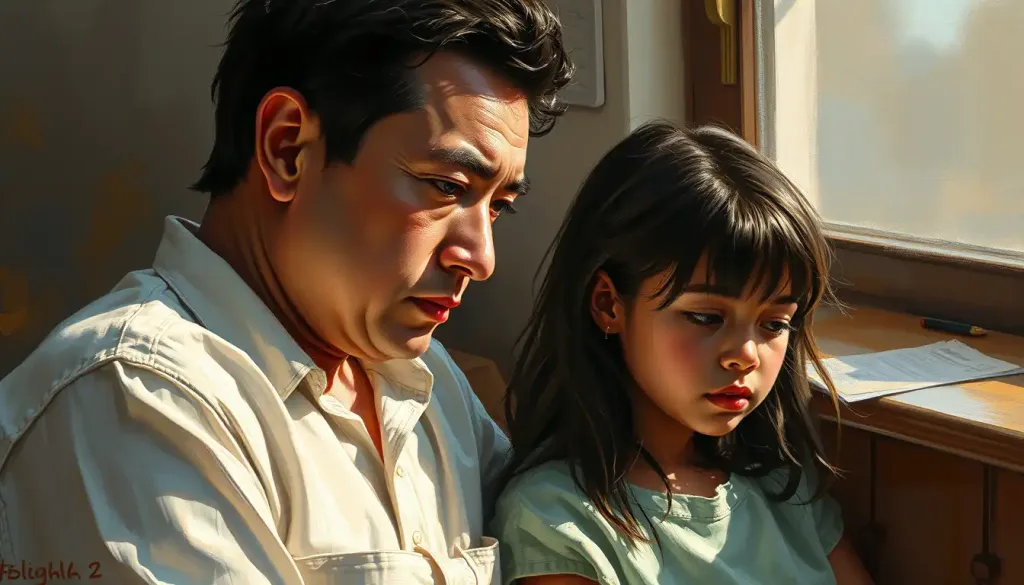
Naturalistic Observation in Psychology: Definition, Examples, and Applications

Induction Psychology: Exploring the Power of Inductive Reasoning in Cognitive…
- Link to facebook
- Link to linkedin
- Link to twitter
- Link to youtube
- Writing Tips
How to Write a Reflective Essay
- 3-minute read
- 29th August 2018
If you think that a “reflective essay” is a college paper written on a mirror, this post is for you. That’s because we’re here to explain exactly what a reflective essay is and how to write one. And we can tell you from the outset that no mirrors are required to follow our advice.

What Is Reflective Writing?
The kind of “reflection” we’re talking about here is personal. It involves considering your own situation and analyzing it so you can learn from your experiences. To do this, you need to describe what happened, how you felt about it, and what you might be able to learn from it for the future.
This makes reflective writing a useful part of courses that involve work-based learning . For instance, a student nurse might be asked to write a reflective essay about a placement.
When writing a reflective essay, moreover, you may have to forget the rule about not using pronouns like “I” or “we” in academic writing. In reflective writing, using the first person is essential!
The Reflective Cycle
There are many approaches to reflective learning, but one of the most popular is Gibb’s Reflective Cycle . This was developed by Professor Graham Gibbs and can be applied to a huge range of situations. In all cases, though, it involves the following steps:

Find this useful?
Subscribe to our newsletter and get writing tips from our editors straight to your inbox.
- Description – You will need to describe your experiences in detail. This includes what happened, where and when it happened, who else was involved, and what you did.
- Feelings – How you felt before, during, and after the experience you describe.
- Evaluation and Analysis – Think about what went well and what could be improved upon based on your experience. Try to refer to ideas you’ve learned in class while thinking about this.
- Conclusions – Final thoughts on what you’ve learned from the experience.
- Action – How you will put what you’ve learned into practice.
If your reflective essay addresses the steps above, you are on the right track!
Structuring a Reflective Essay
While reflective essays vary depending upon topic and subject area, most share a basic overall structure. Unless you are told otherwise, then, your essay should include the following:
- Introduction – A brief outline of what your essay is about.
- Main Body – The main part of your essay will be a description of what happened and how it made you feel . This is also where you will evaluate and analyze your experiences, either as part of the description or as a separate section in the essay.
- Conclusion – The conclusion of your essay should sum up what you have learned from reflecting on your experiences and what you would do differently in the future.
- Reference List – If you have cited any sources in your essay, make sure to list them with full bibliographic information at the end of the document.
Finally, once you’ve written your essay, don’t forget to get it checked for spelling and grammar errors!
Share this article:
Post A New Comment
Got content that needs a quick turnaround? Let us polish your work. Explore our editorial business services.
5-minute read
Free Email Newsletter Template
Promoting a brand means sharing valuable insights to connect more deeply with your audience, and...
6-minute read
How to Write a Nonprofit Grant Proposal
If you’re seeking funding to support your charitable endeavors as a nonprofit organization, you’ll need...
9-minute read
How to Use Infographics to Boost Your Presentation
Is your content getting noticed? Capturing and maintaining an audience’s attention is a challenge when...
8-minute read
Why Interactive PDFs Are Better for Engagement
Are you looking to enhance engagement and captivate your audience through your professional documents? Interactive...
7-minute read
Seven Key Strategies for Voice Search Optimization
Voice search optimization is rapidly shaping the digital landscape, requiring content professionals to adapt their...
4-minute read
Five Creative Ways to Showcase Your Digital Portfolio
Are you a creative freelancer looking to make a lasting impression on potential clients or...

Make sure your writing is the best it can be with our expert English proofreading and editing.

Self-Reflection: Should You Look Yourself in the Mirror?
- Katina Sawyer
- October 7, 2019

Share This Post
Life is busy. We all have multiple demands on our time that can compete with the need to slow down and reflect on ourselves. However, research shows that self-reflection might be generally helpful for gaining an accurate view of yourself. This is because it uncovers important insights , which then predict well-being. Research on self-reflection in the workplace is more limited. However, given the research done outside of work suggests this practice might be helpful, we explore the possibilities below!
What is Self-Reflection?
More popular measures of self-reflection have two components. The first component has to do with thinking about your actions and feelings. For example, maybe you frequently examine the way you feel about things. Or maybe you often consider why you are thinking about whatever you have been thinking about that day. The more you actively process why you are thinking or feeling a certain way, the more self-reflective you are. Also, the more you are motivated to self-reflect, the more likely you are to do it.
The second component has to do with how confused you are by your thoughts or feelings when you reflect on them. The idea is that the more you self-reflect, the more clarity you’ll have about your thoughts. So, if you feel like your thoughts or feelings are always a jumble, you would not score high on self-reflectiveness. If you are high on self-reflection, you are better able to plan your future and reflect on and remember your past.
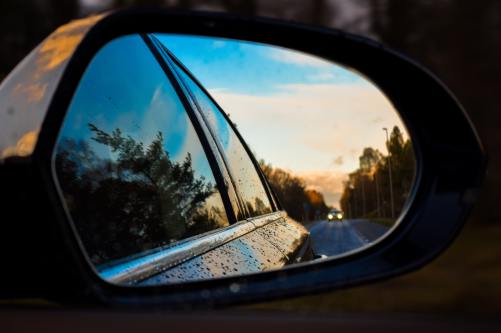
Self-Reflection Works if You Feel Good About Yourself
There has been some mixed findings with regard to whether or not self-reflection alone impacts wellbeing. However, the big difference between studies that find that self-reflection is good for you versus bad, is that some studies don’t account for the attitudes you have about yourself to begin with. If you have negative attitudes about yourself , you are less likely to benefit from self-reflection. If you do have these negative attitudes, then you’re more likely to ruminate , which is different than plain self-reflection.
Rumination is the replaying of negative events or feelings about yourself over and over in your head. If you have negative feelings about yourself, self-reflection sessions can easily turn into self-abuse sessions. So, how can you benefit from self-reflection if you don’t feel good about yourself? You may need to work on your self-confidence before you spend time self-reflecting. Reminding yourself of all of your successes and good qualities on a regular basis might increase your confidence over time. Then, you can try to do the work of self-reflection to accurately understand how your feelings and behaviors are aligning with your goals.

Achieving Your Goals Is Easier if You Truly Understand Yourself
As mentioned before, there isn’t a whole lot of research about self-reflection and work. But, some research with students shows that keeping a self-reflective diary made them feel more effective and healthier. Additionally, studies with students suggest that they may perform better when they are more reflective. Additionally, research shows that being self-reflective might help you to take others’ perspectives and to feel more empathetic toward them. It might also help you decrease feelings of guilt and allow you to make positive changes when you hurt someone else’s feelings. So, there is a lot of promise for applications to the workplace to explore!
The good news is that research also shows that the more you self-reflect, the more likely you are to get better at doing it. So, if you haven’t been self-reflecting before now, that’s ok. You can increase your self-reflection by consciously trying to do more of it. Then, it will start to happen automatically.
So, if you feel like your self-esteem and self-efficacy are decently high, try it! Self-reflecting by keeping a journal or by taking a few minutes each day to think through your feelings and behaviors can help. We’ll be doing these exercises at our retreat as well, in addition to exercises to enhance self-confidence first. Already self-reflective? Let us know how it’s going below!
Subscribe To Our Newsletter
Get updates and learn from the best.

Real Solutions for Building More Inclusive Organizations

What’s Wrong with Millennials?

Work-Life Balance: Keeping Up and Staying Sane
Do you want a healthy workplace, drop us a line and keep in touch.

Copyright © Workr Beeing 2024 All Rights Reserved.
Site built & maintained by: Phix Designs
Comparing Self-Reflection to a Mirror
Introduction.
Self-reflection is a powerful tool that allows us to gain insight into our thoughts, emotions, and actions. It is a process of introspection and self-examination that helps us understand ourselves better, leading to personal growth and development. In many ways, self-reflection is like a mirror that provides a true reflection of who we are.
Just as a mirror shows us our physical appearance, self-reflection reveals our inner selves. It allows us to see beyond the surface and delve into the depths of our being. By taking the time to reflect on our experiences, beliefs, and values, we can gain a clearer understanding of what drives us and shapes our behavior.
Just as we use a mirror to groom ourselves and ensure we present our best selves to the world, self-reflection helps us present our best inner selves. It enables us to identify our strengths and weaknesses, allowing us to make necessary changes and improvements. Self-reflection also helps us recognize our potential and set goals that align with our true desires and aspirations.
Like a mirror, self-reflection requires honesty. We must be willing to examine ourselves objectively and accept both our strengths and our flaws. Only through honesty can we truly understand ourselves and make meaningful progress. However, being honest with ourselves can be challenging. Our perceptions may be clouded by biases and filters, making it difficult to see ourselves clearly. But just as a mirror provides an objective reflection regardless of how we feel about our appearance, self-reflection helps us see the truth about ourselves, even if it is uncomfortable at times.
In this article, we will explore the similarities between self-reflection and a mirror in more depth. We will discuss how self-reflection is a tool for personal growth, the power of a mirror in reflecting our inner selves, and the role of honesty in both self-reflection and mirrors. We will also provide practical ways to utilize self-reflection and mirrors to foster personal development. By embracing self-reflection as a valuable practice, we can gain a deeper understanding of ourselves and become more empowered individuals.
Self-Reflection: A Tool for Personal Growth
Self-reflection is a powerful tool that allows individuals to gain better understanding and insight into themselves. It involves introspection and the examination of one’s thoughts, emotions, and actions. By taking the time to step back and reflect on our experiences and behaviors, we can identify patterns, learn from our mistakes, and make positive changes in our lives.
Definition and Role of Self-Reflection
Self-reflection can be defined as the process of deliberately evaluating one’s thoughts, feelings, and behaviors with the goal of gaining self-awareness and personal growth. It involves deep introspection and honest self-evaluation.
Self-reflection plays a crucial role in personal growth by providing us with valuable insights and understanding. It allows us to gain a deeper understanding of our desires, values, strengths, and weaknesses. It helps us develop a clearer sense of self and a stronger connection with our inner thoughts and emotions. Through self-reflection, we can make better choices and decisions that align with our true selves.
Benefits of Self-Reflection
There are numerous benefits to practicing self-reflection in our daily lives. Some of these include:
Increased self-awareness: Self-reflection helps us become more aware of our thoughts, emotions, and behaviors. It allows us to recognize our strengths, weaknesses, and areas for improvement. This self-awareness is the foundation for personal growth and development.
Improved decision-making: When we take the time to reflect on our thoughts and emotions, we gain a deeper understanding of ourselves. This insight enables us to make better decisions that align with our values and goals.
Enhanced emotional intelligence: Self-reflection helps us become more emotionally intelligent by enabling us to recognize and regulate our emotions. It allows us to understand the impact of our actions on others and make adjustments accordingly.
Increased empathy and understanding: By reflecting on our own experiences, we develop a greater sense of empathy and understanding towards others. This can enhance our relationships and interactions with those around us.
Personal growth and development: Self-reflection is a catalyst for personal growth. It provides us with the opportunity to learn from our mistakes, make positive changes, and develop new skills and habits.
Practicing Self-Reflection
There are various ways to practice self-reflection in our daily lives. Here are a few techniques that can be helpful:
Journaling: Writing down our thoughts, feelings, and experiences in a journal can be a powerful form of self-reflection. It allows us to process our emotions, gain clarity, and track our personal growth over time.
Meditation: Taking time for mindfulness meditation allows us to quiet our minds and observe our thoughts and emotions without judgment. This practice can deepen our self-awareness and facilitate self-reflection.
Seeking feedback: Actively seeking feedback from trusted friends, family members, or mentors can provide valuable insights and perspectives. It helps us see ourselves from an external viewpoint and identify blind spots.
Asking introspective questions: Asking ourselves thought-provoking questions can stimulate self-reflection. Questions like “What am I grateful for?” or “What can I learn from this experience?” can help us gain new insights and understanding.
Engaging in creative activities: Activities such as painting, writing, or playing a musical instrument can be opportunities for self-reflection. They allow us to express ourselves and tap into our subconscious thoughts and emotions.
In conclusion, self-reflection is a powerful tool for personal growth and development. By practicing self-reflection, we can gain insight into ourselves, make better decisions, and foster personal growth. It is through self-reflection that we truly understand ourselves, embrace our strengths, and work on our weaknesses. It is a continuous process that allows us to evolve, learn, and become the best versions of ourselves.
The Power of a Mirror
In our everyday lives, we encounter mirrors multiple times a day. We use them to check our physical appearance, make sure we look presentable, and fix any imperfections before facing the world. Mirrors serve as a tool that reflects our external appearance back to us. However, mirrors can also be seen as a metaphor for self-reflection, as they have the power to reflect our inner selves.
Just like a mirror reflects our physical appearance, self-reflection allows us to see our true selves - our thoughts, feelings, and motivations. It provides us with a window into the depths of our being, giving us the opportunity to gain a deeper understanding and insight into who we are.
Through self-reflection, we can explore our strengths, weaknesses, and potential, just like a mirror highlights our physical features, both desirable and undesirable. By looking inward and examining our thoughts, behaviors, and emotions, we can discover the areas in which we excel and the areas in which we may need to improve or grow.
Similar to how a mirror can reveal what we may have previously been unaware of, self-reflection opens up a world of self-discovery. It helps us uncover hidden talents, passions, and values that we may not have recognized before. It allows us to confront and address our fears, insecurities, and limiting beliefs, ultimately leading to personal growth and development.
Furthermore, just as a mirror allows us to see ourselves objectively, self-reflection encourages us to be honest with ourselves. It requires us to face our own flaws and acknowledge them without judgment or criticism. By being honest in our self-reflection, we can embrace our imperfections and use them as opportunities for growth, just as a mirror reflects both our beauty and our blemishes.
However, being honest with ourselves may not always be easy. The fear of facing our own shortcomings, biases, and mistakes can be daunting. We may be tempted to avoid self-reflection or deceive ourselves by projecting an image that is not truly reflective of who we are. But just as the mirror shows us the truth, self-reflection requires us to confront the truth within ourselves, even if it is uncomfortable or challenging.
In order to overcome the challenges of honesty in self-reflection, we can adopt strategies to create a supportive and non-judgmental environment for ourselves. This may involve practicing self-compassion, embracing vulnerability, seeking feedback from others, or seeking the guidance of a mentor or therapist. By cultivating an environment that values honesty and self-acceptance, we can embark on a journey of self-reflection that is transformative and empowering.
Ultimately, the power of a mirror lies in its ability to reflect our physical appearance back to us, allowing us to see ourselves objectively. In the same way, self-reflection serves as a mirror for our inner selves, providing us with a truthful reflection of who we are. By embracing self-reflection and harnessing its power, we can gain greater understanding, insight, and growth in our personal lives.
The Role of Honesty in Self-Reflection and Mirrors
Honesty plays a crucial role in both self-reflection and the reflection we see in mirrors. Just as a mirror reflects our physical appearance accurately, self-reflection requires us to be honest with ourselves in order to see a truthful reflection of our inner selves.
When we engage in self-reflection, it is essential to face our strengths, weaknesses, and potential with honesty. It is tempting to gloss over our flaws or inflate our accomplishments, but true growth and development can only occur when we have a clear and honest understanding of who we are.
Much like a mirror, honesty in self-reflection provides us with an objective perspective. It allows us to see ourselves as we truly are, rather than through the filters of societal expectations, self-delusion, or ego. By embracing honesty, we create a space for self-awareness and deep insights that can lead to positive changes in our lives.
However, being honest with ourselves is not always easy. It can be uncomfortable and challenging to confront our flaws, acknowledge our mistakes, or recognize areas where we need to grow. We may have built up defense mechanisms or created narratives to protect ourselves from facing uncomfortable truths.
Overcoming these challenges requires self-compassion and courage. It is important to remember that self-reflection is a tool for growth, and that growth can only happen when we are willing to acknowledge and address our areas for improvement. Honesty allows us to take responsibility for our actions, learn from our mistakes, and make conscious choices to better ourselves.
One strategy for cultivating honesty in self-reflection is to create a safe and non-judgmental space for introspection. This can be done through practices such as journaling, meditation, or seeking the guidance of a trusted mentor or therapist. Taking time for self-reflection in a supportive environment allows us to let go of our defenses and delve deeper into our true selves.
When it comes to mirrors, they also require honesty to serve their purpose effectively. Mirrors do not judge or distort our reflection; they simply reflect what is there. In the same way, self-reflection can be a powerful tool for growth when we approach it with honesty and without judgment.
In conclusion, honesty is a key ingredient in both self-reflection and the reflection we see in mirrors. To gain a true understanding of ourselves, we must be willing to face our strengths, weaknesses, and potential with honesty. This can be challenging, but it is through these honest reflections that we can grow and develop into our best selves.
Using Self-Reflection and Mirrors for Growth
Self-reflection and mirrors can be powerful tools for personal growth and development. By incorporating self-reflection into our daily lives and metaphorically using mirrors, we can gain valuable insights and make positive changes.
Techniques for Effective Self-Reflection
There are various techniques that can be used to enhance the effectiveness of self-reflection. One popular technique is journaling. By putting our thoughts and feelings onto paper, we can gain a deeper understanding of ourselves and our experiences. Journaling allows us to reflect on our actions, emotions, and beliefs, helping us uncover patterns and identify areas for improvement. Additionally, it serves as a valuable record of our personal growth journey.
Meditation is another powerful practice for self-reflection. Through mindfulness meditation, we can observe our thoughts, emotions, and sensations without judgment. This practice helps us develop greater self-awareness and enables us to recognize and challenge negative thought patterns or limiting beliefs. By regularly engaging in meditation, we can cultivate a sense of inner calm and clarity, which can support our personal growth efforts.
Metaphorical Use of Mirrors
Beyond physical mirrors, we can also use the metaphorical concept of mirrors for self-reflection and personal development. Just as a mirror reflects our physical appearance, a metaphorical mirror can help us reflect on our inner selves. This can involve seeking feedback from others, whether through open conversations or constructive criticism. By actively seeking feedback, we can gain different perspectives on our strengths, weaknesses, and areas for growth.
It is crucial to approach feedback with an open mind and a willingness to learn and grow. Feedback, like a mirror, can provide us with valuable insights into ourselves, helping us uncover blind spots or areas we may not have considered before. By embracing feedback and using it as an opportunity for self-reflection, we can continue to develop and improve ourselves.
Integrating Self-Reflection and Mirrors into Daily Life
To make the most of self-reflection and mirrors for personal growth, it’s essential to integrate these practices into our daily lives. This can be done by setting aside dedicated time for self-reflection, such as at the start or end of each day. During this time, we can reflect on our thoughts, emotions, and experiences, and consider how they align with our values and goals.
In addition to designated reflection time, we can also incorporate self-reflection and mirror-like observations throughout our daily activities. For example, we can pause and take a moment to honestly assess how we reacted in a challenging situation or how our behaviors may have affected others. By cultivating a habit of self-awareness and reflection in our everyday lives, we can continually learn and grow.
Using self-reflection and mirrors as tools for personal growth and development allows us to gain a deeper understanding of ourselves and make positive changes. Whether through journaling, meditation, seeking feedback, or integrating reflection into our daily lives, self-reflection helps us uncover our true strengths, weaknesses, and potential. By embracing self-reflection and using it as a valuable tool, we can continue to grow, develop, and live authentically.
In conclusion, self-reflection can be compared to a mirror in its ability to provide us with a true reflection of ourselves. Just as a mirror shows us our physical appearance, self-reflection allows us to see our inner selves more clearly.
Throughout this article, we have discussed the importance of self-reflection in personal growth and development. Self-reflection not only helps us gain a better understanding and insight into ourselves, but it also has numerous benefits such as increased self-awareness and improved decision-making. By taking the time to reflect on our thoughts, emotions, and actions, we are able to identify our strengths, weaknesses, and areas for potential growth.
Similarly, a mirror reflects our physical appearance truthfully. It does not hide any imperfections or blemishes but presents a clear image of what is there. In the same way, effective self-reflection requires honesty with ourselves. It requires us to acknowledge and accept both our positive qualities and our areas for improvement. By being honest and objective in our self-reflection, we can gain a clearer picture of who we are and what we need to work on.
However, being honest with ourselves can be challenging. Self-deception, fear, and the avoidance of uncomfortable truths can often hinder our ability to truly reflect on ourselves. Overcoming these challenges requires courage, self-compassion, and a willingness to confront our own shortcomings. It may also involve seeking feedback from others and being open to different perspectives.
In addition to self-reflection, using mirrors metaphorically can also aid in our personal growth and development. By looking at ourselves in a mirror and practicing self-compassion, we can learn to accept and love ourselves unconditionally. This self-acceptance allows us to embrace our strengths and weaknesses, enabling us to grow and evolve into the best version of ourselves.
To effectively utilize self-reflection and mirrors for growth, there are practical techniques that we can incorporate into our daily lives. Journaling is a powerful tool that can help us reflect on our thoughts and emotions. By taking the time to write about our experiences, we can gain a deeper understanding of ourselves and identify patterns and areas for improvement. Meditation and mindfulness practices can also enhance our self-reflection, as they provide opportunities for self-awareness and self-observation.
In conclusion, self-reflection and mirrors both serve as valuable tools for personal growth and development. They allow us to see a true reflection of ourselves, enabling us to embrace our strengths, acknowledge our weaknesses, and unlock our full potential. By embracing self-reflection and using it as a regular practice, we can gain greater understanding and insight into ourselves, leading to a more fulfilling and meaningful life. So, let us take the time to reflect, observe ourselves in the metaphorical mirror, and embark on a journey of self-discovery that ultimately leads to personal growth and happiness.
Intuitive Decision Making for Entrepreneurs
The shocking truth about productivity, exclusive insights from a reflective mind, the controversy of self-criticism, philosophical musings, intense self-examination.

IMAGES
VIDEO
COMMENTS
Most of us associate looking in the mirror with narcissism or feelings of inadequacy, but learning how to see yourself in your own reflection can increase self-compassion, aid stress-management, and improve relationships and emotional resilience.
A few months ago, for the first time in a very, very long time, I looked at myself in the mirror for more than a couple of minutes. I used to cry every time I saw my reflection, so I figured that it would be best for me if I just stopped looking. Every time I looked at my body, all I saw were my flaws.
The essay "Looking Myself in the Mirror" effectively explores personal development and self-identity, highlighting vulnerability and acceptance as key components of personal growth. what is the punishment for prostitution Prostitution penalties vary across jurisdictions, reflecting societal perspectives.
It's about self-forgiveness and finding yourself. ... Personal Essays; Memoirs & Biographies; Religious Studies; Look at Your Reflection in the Mirror. Author: Meriyen Marquez. Updated: Aug 18, 2021 10:59 PM EDT. ... So, Look closely at the reflection on the mirror because it is me, you, and whatever you're choosing to pursue should feel ...
For some, mirror gazing can become an obsession, leading to excessive self-scrutiny and anxiety. This is where Mirror Gazing Obsession: The Psychology Behind Excessive Self-Reflection becomes relevant, exploring the fine line between healthy self-awareness and detrimental fixation. Mirror Exposure Therapy: Reflection as Healing
The field of mirror image perceptions has been the subject of numerous fascinating studies, employing a variety of research methods to uncover the mysteries of self-reflection. One of the most well-known experiments in this area is the mirror test, used in developmental psychology to assess self-awareness in young children and animals.
for Self-Reflection, Journal of Creativity in Mental Health, 10:2, 130-148, DOI: ... For Haglund (1996), the power of the mirror metaphor captured the complexity of experiences. This introspective ...
Structuring a Reflective Essay. While reflective essays vary depending upon topic and subject area, most share a basic overall structure. Unless you are told otherwise, then, your essay should include the following: Introduction - A brief outline of what your essay is about. Main Body - The main part of your essay will be a description of ...
Life is busy. We all have multiple demands on our time that can compete with the need to slow down and reflect on ourselves. However, research shows that self-reflection might be generally helpful for gaining an accurate view of yourself. This is because it uncovers important insights, which then predict well-being.Research on self-reflection in the workplace is more limited.
Self-reflection is a powerful tool that allows us to gain insight into our thoughts, emotions, and actions. It is a process of introspection and self-examination that helps us understand ourselves better, leading to personal growth and development. In many ways, self-reflection is like a mirror that provides a true reflection of who we are.